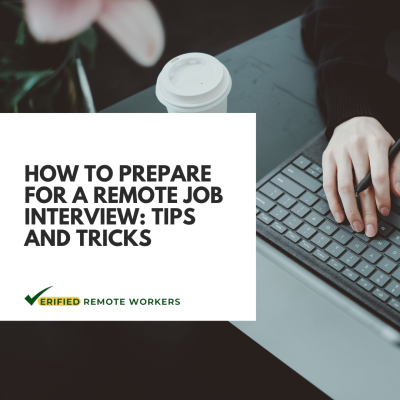Remote work has moved from a temporary trend to a permanent shift in how companies operate. If you’ve just started working remotely, or you’re aspiring to, one thing is certain: having the right digital skills isn’t optional anymore. It’s the difference between surviving and thriving. As a new remote worker, you might be wondering: “What should I learn? Where do I even begin?” This guide is here to show you the top digital skills you need to learn for remote work success in 2025.
Top Digital Skills to Learn for Remote Work Success in 2025
1. Digital Communication Tools (Email, Slack, Zoom, Google Meet)
At the heart of remote work is communication. You may not be meeting in a physical office, but your ability to communicate clearly, professionally, and consistently is what makes you a valuable team member.
What you need to master:
- Email etiquette: How to write clear, professional, and polite emails.
- Slack or Microsoft Teams: These tools replace office chatter, learn how to communicate without sounding too casual or robotic.
- Video conferencing tools (Zoom, Google Meet): Learn how to schedule meetings, share your screen, and use virtual backgrounds when needed.
Remote teams need people who don’t let things “get lost in translation.” Your ability to write and speak clearly will make you a go-to team member.
2. Project Management Tools (Trello, Notion, Asana, ClickUp)
You’ll quickly realize that keeping track of tasks and deadlines is different when no one is walking past your desk. Project management tools are the new office whiteboards.
Start with:
- Trello: Good for beginners. Learn to manage tasks using cards and checklists.
- Asana or ClickUp: Used by larger teams for more complex tracking.
- Notion: Combines notes, tasks, wikis, and databases in one place.
Remote workers who know how to manage tasks independently and keep others in the loop are trusted more and promoted faster.
3. Time Management and Digital Calendars (Google Calendar, Calendly)
Discipline is a silent superpower in remote work. Without a manager watching over your shoulder, it’s up to you to meet deadlines, attend meetings, and stay productive.
What to focus on:
- Google Calendar: Learn to set events, create recurring tasks, and get reminders.
- Calendly: A tool for scheduling meetings without the back-and-forth of emails.
- Use time-blocking: Break your day into focused work periods.
Mastering your time is mastering your freedom. Remote work gives flexibility, but only if you stay organized.
4. Writing and Digital Literacy
Whether you’re writing a team update, a proposal, or a Slack message, your writing skills reflect your thinking. In remote jobs, your words are your voice.
Improve in:
- Grammar and tone: Use tools like Grammarly to polish your writing.
- Clarity and structure: Keep messages short, clear, and actionable.
- Basic formatting: Know how to format documents in Google Docs or Microsoft Word.
A remote worker who writes well can persuade, inform, and lead all from behind a screen.
5. Basic Graphic Design (Canva, Figma for Beginners)
No, you don’t need to be a professional designer. But being able to create a decent graphic for a presentation, proposal, or social media post sets you apart.
Where to begin:
- Canva: A free, beginner-friendly design tool with templates.
- Figma (basic level): Great for collaborative work and product design (especially if you’re in tech or marketing).
Visual communication matters online. Knowing how to make things look good helps you express ideas better and faster.
6. Cloud Collaboration Tools (Google Drive, Dropbox, OneDrive)
Remote work means sharing files digitally, no more flash drives or printed handouts.
Must-know tools:
- Google Drive: Create and share docs, sheets, and slides easily.
- Dropbox/OneDrive: Store, organize, and share files across devices.
Employers look for people who can work within cloud environments confidently and securely.
7. Cybersecurity Awareness
In remote work, you are your own IT department. Knowing how to protect your devices and data is a digital skill that builds trust.
What to learn:
- Use strong passwords and two-factor authentication
- Recognize phishing emails or fake job postings
- Use a VPN when working on public Wi-Fi
Companies won’t hire or keep remote workers who put their systems at risk. Your ability to protect your work devices and sensitive data is essential.
8. Digital Customer Service and Virtual Etiquette
If your role involves interacting with clients or team members, how you show up matters, even behind a screen.
Skills to improve:
- Video call etiquette: Dress appropriately, be on time, and look into the camera.
- Tone and empathy: Read emotional cues even when you can’t see someone’s face.
- Responsiveness: Be quick to respond but also thoughtful.
People want to work with people who are professional, pleasant, and proactive, even if they’ve never met you in person.
9. Specialized Career Tools (Based on Your Niche)
Once you master the general digital skills, it’s time to level up with career-specific tools.
Examples:
- Social media managers: Buffer, Meta Business Suite, Later
- Writers: Hemingway, SurferSEO, Jasper AI
- Customer support reps: Zendesk, Intercom
- Data analysts: Excel, Google Sheets, Tableau
Industry tools signal that you’re ready to plug into a team and start contributing immediately.
10. Building a Remote-Friendly Portfolio
Having digital skills is one thing, showing proof is another. Recruiters don’t just want to read a CV. They want to see what you can do.
At Verified Remote Workers, we help you:
- Create a digital portfolio tailored for remote teams
- Showcase your skills, certifications, and work samples
- Position yourself for international job opportunities
In 2025, portfolios will be more powerful than résumés. Don’t just say you can do it, show it.
Conclusion
If you’re just starting out, this list might feel overwhelming. But here’s the truth: remote work is a journey. You don’t need to be an expert in all these areas overnight.
Start with communication and organization tools.
Pick one or two areas to grow in each month.
Join a supportive community like Verified Remote Workers that gives you structure, guidance, and real opportunities.
In remote work, the better prepared you are, the more confidently you’ll show up, and the faster you’ll succeed.
Want help learning these skills and creating a remote-ready portfolio? We’ll walk with you step-by-step. Join Verified Remote Workers today




